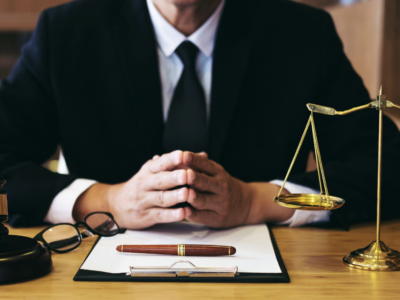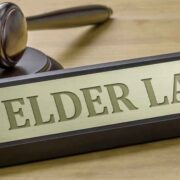
The Federal Rules of Evidence are a set of rules that govern the admission of evidence in federal criminal and civil proceedings. The rules are promulgated by the Supreme Court and they have been amended several times since they were first adopted in 1975.
As a new trial lawyer, it is important to be familiar with the Federal Rules of Evidence. The rules are binding on all federal courts and govern everything from what evidence can be presented at trial to how that evidence is to be used.
The rules are designed to ensure that only relevant and reliable evidence is admitted into evidence and that all parties have a fair opportunity to present their case. They affect every stage of a trial, from the pretrial phase to the final verdict. They govern what types of evidence can be admitted, how evidence can be presented and how witnesses can be questioned. You will be well positioned to serve clients better as a criminal defense attorney when you understand the rules.
The Federal Rules of Evidence are intricate, and they can be complicated to understand. However, if you are involved in a federal trial, it is important to have a basic understanding of the rules and how they might affect the outcome of the trial. If you love to examine the big picture, an online law program from Cleveland State University will give you the tools you need for an exciting career. You will learn by studying alongside practicing attorneys and real-world practitioners through lectures, cases and practical applications.
So, what are these rules of evidence, and how do they affect trials?
It starts with hearsay
The Federal Rules of Evidence are designed to provide the tools necessary for civil and criminal trials. However, they also govern the admission and admissibility of hearsay. Hearsay is an unsworn statement that is offered as evidence at trial. For example, if a witness testifies that the defendant told him to commit the crime he is on trial for, this statement is considered hearsay. The Federal Rules of Evidence strictly limit what types of hearsay can be admitted into evidence at trial.
The Federal Rules of Evidence are quite complex and include several exceptions to the general rule prohibiting hearsay statements. And while hearsay is generally not allowed, there are exceptions to this rule, such as when the unsworn statement falls under the Federal Rules’ definition of an exception to the hearsay rule.
Embrace prejudice
Prejudice is a word that usually goes hand in hand with the adjective ‘prejudicial’. A prejudiced witness is one who has a bias towards or against a party in the case, and this bias can be expressed in their testimony.
The Federal Rules of Evidence are designed to prevent prejudiced witnesses from unfairly influencing a trial by restricting the use of this evidence. That said, some courts of law recognize certain situations where prejudiced witnesses may be admitted into evidence.
Propensity or insight
A witness who has been arrested or convicted of a crime that relates to the case at hand is called a ‘propensity’ or ‘insight’ witnesses respectively. Propensity witnesses are often used in criminal trials to prove the defendant’s propensity for engaging in certain behaviors. These behaviors range from a general tendency towards violence all the way to committing specific crimes.
What makes propensity evidence so controversial is that these types of testimony can be highly prejudicial towards the defendant, and they can even be used to replace direct evidence of guilt. However, advocates and attorneys for the defense often rely on these witnesses in order to get their cases thrown out.
The witness’s personal knowledge
Personal knowledge is essentially any evidence that would allow the witness to directly observe facts that are otherwise unknown. Personal knowledge may include personal observation, interviews with other persons, or even things as simple as seeing a crime scene on TV. The fact that the witness has personal knowledge is important because it establishes his credibility.
Evidence of personal knowledge must be provable by the testimony of the witness himself. It cannot be proven by other means, such as a witness being unable to recall certain facts. For a personal knowledge statement to be admissible in court, the witness must have first-hand knowledge of what he is saying. He cannot testify against what he has seen or heard from someone else without there being some other proof of the facts he is describing.
The Federal Rules of Evidence are quite comprehensive and they set the standard for what can be admitted as evidence in a trial. They provide a legal justification for the admissibility of certain types of evidence and they establish the guidelines for how these rules will be applied.
Impeaching a witness
In a criminal trial, an attorney will often try to impeach the credibility of the prosecution’s witnesses. This is done in order to suppress the testimony of other witnesses, making it harder for them to provide any solid evidence against the defendant.
Impeachment of witnesses can also be used in civil trials — however, it is most common in criminal cases. During a criminal trial, a party may attempt to discredit or impeach the credibility of another witness if he believes that this witness’ testimony is false or biased. Therefore, many attorneys will sidestep any questions that may allow the opposing party to impeach their own witnesses.
Attacking credibility
Attacking a witness’s credibility is an important part of a criminal defense attorney’s strategy because it allows them to place the blame for their client’s actions on another individual. Attacking the credibility of a witness’s testimony can be done in more than one way.
The Federal Rules of Evidence allow attorneys to attack the credibility of witnesses without having to provide any evidence that the witness’s testimony is false. The only thing standing in the way of an attorney discrediting a witness is his own sense of decorum.
Sequestration
The Federal Rules of Evidence also state that parties to a court case are not allowed to have private interactions with witnesses or jurors. All contact between a party and the jury must be done in the presence of the opposing party.
This rule is especially important for cases where the witness is presenting a testimony that is directly opposed to other testimony that one of the parties has already given in open court. This rule also applies to parties’ interactions with each other, as well as their lawyers.
Bottom line
The Federal Rules of Evidence are comprehensive and detailed in their application. The rules are designed to ensure that only reliable and relevant evidence is presented to the jury and that the jury is able to properly weigh that evidence in reaching a decision. These rules are meant to prevent biased evidence from influencing trials, but they also allow for some kinds of evidence to be admitted when they stand in the best interest of justice.











